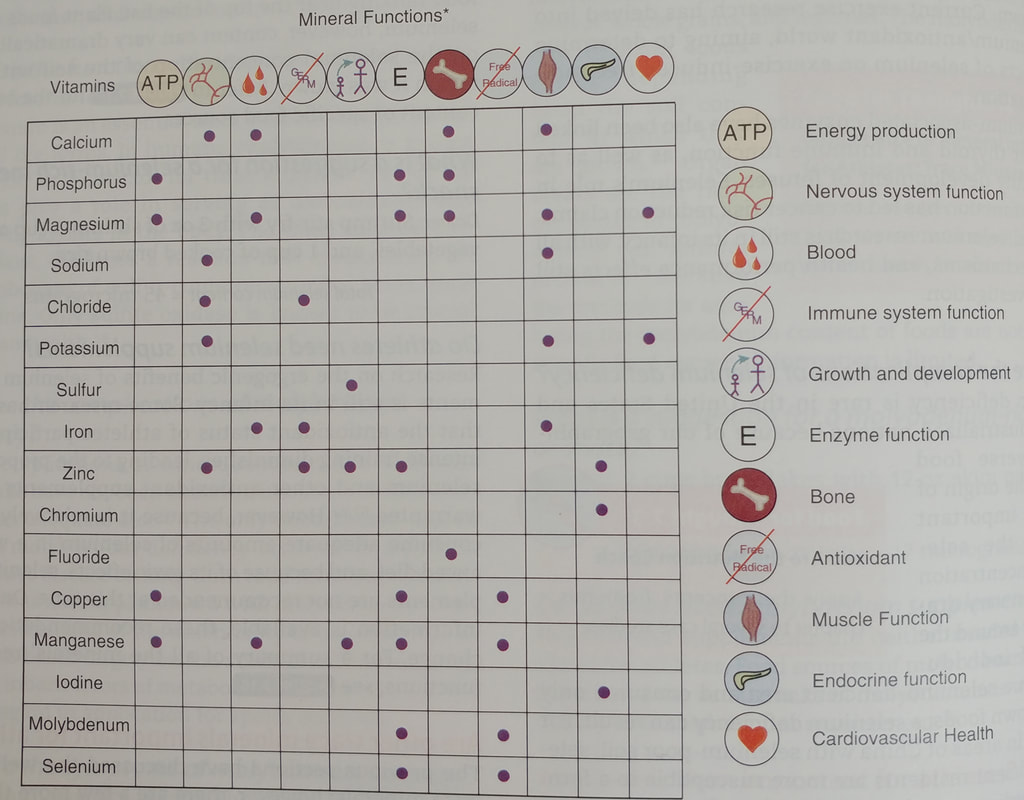|
Below is that same great function chart but this time for all the minerals. As you might know, there are major and trace minerals. A mineral is called a major mineral when the body requires amounts greater than 100 milligrams (0.004 oz) per day. A trace mineral is required by the body less than 100 milligrams per day.
If you are interested to know more about minerals and how they could potentially help you improve your overall health or where to find these minerals in nature, contact us today. Minerals are unique nutrients in several respects. Unlike carbs, fats, proteins, and vitamins, minerals are not organic molecules. They are inorganic elements or atoms. Minerals contain no calories and, although essential, are needed by the body in very small amounts. After ingestion, the structure of minerals is not altered, unlike the reaction of macronutrients, which undergo changes in structure during digestion. Because of the minerals structure, they are unaffected by cooking techniques, digestive processes and/or exposure to enzymes. Major Minerals: Calcium, Chloride, Magnesium, Potassium, Phosphorus, Sodium & Sulfur. Trace Minerals: Iron, Zinc, Chromium, Fluoride, Copper, Manganese, Iodine, Molybdenum & Selenium.
0 Comments
Leave a Reply. |
Author
DannyTheCoach Archives
January 2023
Categories
All
|


 RSS Feed
RSS Feed